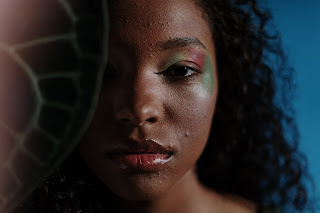What is fungal acne, fungal acne treatment
What is fungal acne?
If you have pimples that do not go away whatever you do and that itches you, that’s mean you may be dealing with folliculitis pity rostrum or folliculitis to Malassezia folliculitis in Malassezia it is not at all the same as acne vulgaris and it is vital to distinguish acne vulgaris the true the one.
We are talking about a lot involves the development of bacteria folliculitis Malassezia it involves the development of a yeast Malassezia it is not technically acne but a fungus and that makes all the difference no matter what you call it.
It is usually due to an excessive yeast called Malassezia which is in the same biological classification as fungi in hair follicles in addition fungal acne can be contagious. Because it's a yeast and yeast tends to spread with this in mind it is possible that fungal acne is passed into others.
How does fungal acne differ from other forms of acne?
Well, fungal acne is not acne at all psych nurse says it's really an infection of the hair follicle other differences include intense itching and placement inflammatory acne tends to affect the face and is usually due to increased oil production follicular blockage excessive bacterial growth of
Propionibacterium acnes or hormonal changes, on the other hand, fungal acne frequently appears as uniform papules and pustules on the chest and back or in areas of occlusive clothing how can you spot fungal acne can be difficult to diagnose. Because it often looks like your ordinary acne it looks like small white dots that are around the size of a pinpoint or more precisely one millimeter in circumference.
Some dermatologists say it usually is on the chest, shoulders, and back and will appear in clusters, often it involves wearing restrictive clothing such as a diving suit or sweating under clothes.
Fungal acne treatment
Fungal acne is treated depending on the condition of the infection. Might be your dermatologist suggest something as simple as a body wash or he could prescribe medication it is likely that they advise incorporating a topical sulfur wash into your routine which is antifungal and antibacterial the dermatologist generally recommends the anti-dandruff shampoo.
If the infection does not start to disappear after one month your dermatologist may prescribe an oral antifungal medicine since fungal acne is due to the proliferation of yeasts in the hair follicles a general oral treatment is usually required to penetrate deep into the follicle patients are usually advised to schedule a sweat session to work out 24 hours after taking the oral antifungal pill as it has been proven that the drug is secreted by the sweat glands in the hair follicles.


Comments
Post a Comment